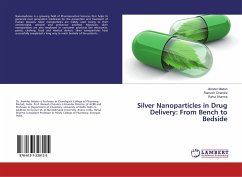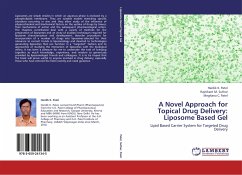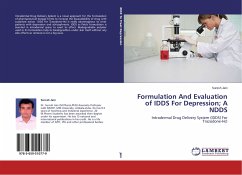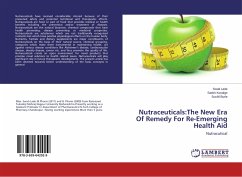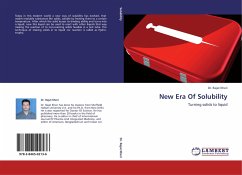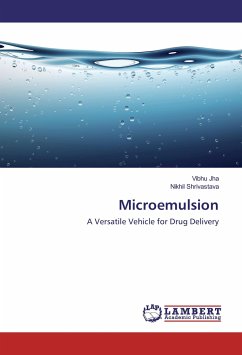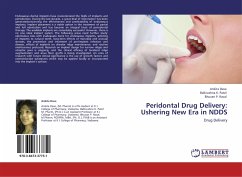
Peridontal Drug Delivery: Ushering New Era in NDDS
Drug Delivery
Versandkostenfrei!
Versandfertig in 6-10 Tagen
32,99 €
inkl. MwSt.

PAYBACK Punkte
16 °P sammeln!
Endosseous dental implants have revolutionized the fields of implants and periodontics. During the last decade, a great deal of information has been generatedconcerning the effectiveness and predictability of endosseous implants. Implant placement is a viable option in the treatment of partial and full edentulism and has become an integral facet of periodontal therapy. The available implants are remarkably successful. However, there is no one ideal implant system. The following areas need further study: edentulous sites with inadequate bone for endosseous implants, splinting of implants to nat...
Endosseous dental implants have revolutionized the fields of implants and periodontics. During the last decade, a great deal of information has been generatedconcerning the effectiveness and predictability of endosseous implants. Implant placement is a viable option in the treatment of partial and full edentulism and has become an integral facet of periodontal therapy. The available implants are remarkably successful. However, there is no one ideal implant system. The following areas need further study: edentulous sites with inadequate bone for endosseous implants, splinting of implants to natural teeth, long-term effects of microbial and occlusal stresses, the prevention and treatment of peri-implant infection and disease, effects of implants on alveolar ridge maintenance, and routine maintenance protocols. Research on implant design for narrow ridges and atrophic jaws is ongoing, and the clinical efficacy of localized ridge augmentation and sinus floor grafts is being investigated. An area of research with future clinical significance is the use of growth factors and osteoinductive substances which may be applied locally or incorporated into the implant s surface.



